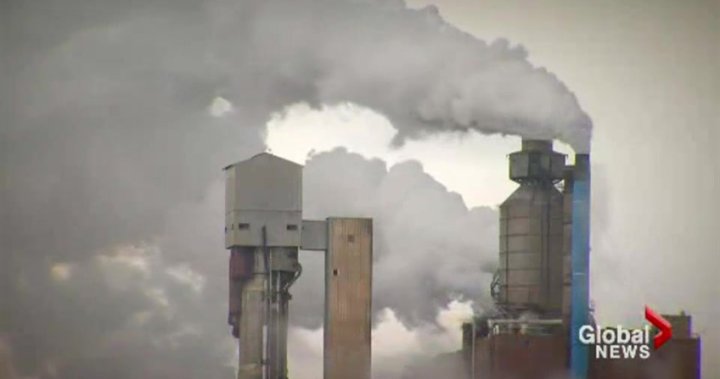The Supreme Court of Canada’s ruling that the federal carbon price is constitutional raises questions about Canada’s ongoing ability to compete with other energy producers around the world, an oil and gas expert said Thursday.
The ruling represents a shift in power to Ottawa from the provinces which produce most of Canada’s oil and gas and have the most expertise in regulating, promoting and understanding the industry, said Richard Masson, an executive fellow at the University of Calgary’s School of Public Policy.
He said that’s a worry because if the price on carbon is set too high in an effort to encourage people to use less fossil fuel, it will allow producers in countries with lower standards to grab market share away from Canadian companies.
“I think we’ve got years of trying to strike the right balance yet to come but we’ve got a better framework, more certainty,” Masson said in an interview.
“If we don’t see the production growth here, it doesn’t mean the world is better off, it just means somebody else is producing the oil because, at the end of the day, it’s overall demand that has to be satisfied.”
Other observers said the ruling means higher costs for both consumers and industry as Ottawa intends to increase the carbon price from $50 per tonne in 2022 to $170 per tonne by 2030.
If prices reach that level, it will make sense for industrial emitters to spend more to reduce their emissions as opposed to simply buying credits to offset them, said Duane Reid-Carlson, CEO of electricity consultancy EDC Associates in Calgary.
“At $170 a tonne, what we think is going to happen is you’re going to start seeing physical abatement, and I think that’s the intent of the pricing target, to see real emissions reductions,” he said.
An updated EDC report concludes the emissions reductions and an increase in renewable energy capacity will likely work together to moderate the market price of carbon offsets, he said.

In a report, National Bank financial analyst Amber Brown said a federal carbon tax could lead to “more clarity, transparency and liquidity” regarding the carbon offsets market, agreeing that would trigger greater spending on emission-reducing technology.
The ruling provides needed clarity for the oil and gas industry going forward, said Masson, pointing out that a new oilsands project could be expected to produce oil for 30 or 40 years and builders want to have as much certainty as possible before committing billions of dollars in capital.
It’s possible Canada can increase production by about one million barrels per day over the next decade even with higher carbon pricing, he said, although that could make it more difficult for the country to meet its emission reduction goals.
“We want to produce resources that the world needs as efficiently as possible. That’s what the regime should be striving for, not just trying to overtax our domestic resources, meaning somebody else is going to be producing them somewhere else in the world,” he said.
In a statement, CEO Tim McMillan of the Canadian Association of Petroleum Producers said the oil and gas industry is developing “world leading technology” to reduce emissions.
“Based on the Supreme Court of Canada’s decision, it will be important for the federal government and provinces to work together to support Canada’s environmental and economic objectives,” he said.
“In Canada, each province has very different opportunities to mitigate climate change based on their unique circumstances, and we support continued flexibility to allow for provincial input.”
Goldy Hyder, CEO of the Business Council of Canada, welcomed the Supreme Court ruling but said convincing business to invest the billions of dollars needed to cut emissions will require a stable and predictable regulatory environment, not just carbon pricing.
The ruling allows Canadians to move forward with more clarity but co-operation between Ottawa and the provinces to find solutions that recognize the unique circumstances in each province is essential, said Marla Orenstein, director of the natural resources centre at the Canada West Foundation.
© 2021 The Canadian Press




